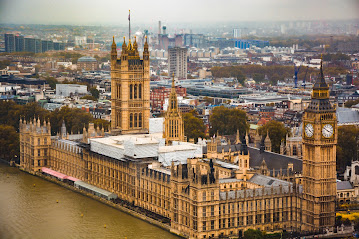Quirks and Traditions of the UK Parliament: The Despatch Box
In the grand chamber of the UK Parliament, where fiery debates and passionate discussions unfold, the Despatch Boxes take centre stage. Positioned on opposite sides of the House of Commons, these symbolic podiums play a vital role in shaping parliamentary proceedings. As Members of Parliament (MPs) step up to the Despatch Box, they enter a realm where words hold immense power and the traditions of the House guide their every move.
The Significance of the Despatch Box:
Imagine the scene: the House of Commons buzzing with anticipation as an MP approaches the Despatch Box. These podiums, often crafted from historic wood, hold immense significance in the parliamentary theatre. Standing behind the Despatch Box signifies that the MP has been granted the floor, giving them the opportunity to articulate their views, challenge opposing arguments, and advocate for their constituents.
Addressing the Speaker:
However, there is a distinctive tradition associated with the Despatch Box that adds an element of formality to the proceedings. As MPs stand at the Despatch Box, their words are directed not to their fellow MPs but to the Speaker of the House. This tradition serves as a reminder of the Speaker's role as the impartial presiding officer, tasked with maintaining order and ensuring fair debates. By addressing the Speaker, MPs symbolise their respect for the institution and recognise the Speaker's authority to oversee the proceedings.
A Battle of Words:
The Despatch Box becomes a stage for the battle of words, where MPs passionately argue their positions, challenge policies, and engage in rigorous debate. These exchanges showcase the essence of democracy, where differing opinions clash, ideas are scrutinised, and decisions are made through deliberation and discourse.
The Despatch Box also symbolises the adversarial nature of parliamentary debates. MPs from opposing parties often stand at their respective Despatch Boxes, passionately defending their party's policies and challenging their opponents. The Despatch Boxes become platforms for rhetoric, persuasive arguments, and attempts to sway public opinion.
Historical Significance:
The Despatch Box holds historical significance, embodying the legacy and traditions of the UK Parliament. The practise of addressing the Speaker dates back centuries and has become an integral part of the parliamentary culture. As MPs stand at the Despatch Box, they follow in the footsteps of their predecessors, connecting to the rich tapestry of parliamentary history.
Conclusion:
The Despatch Boxes in the UK Parliament represent much more than mere podiums. They symbolise the clash of ideas, the art of persuasive argumentation, and the spirit of democratic deliberation. As MPs address the Speaker from these hallowed podiums, they engage in a battle of words, fighting to champion their constituents' interests and shape the course of the nation.
The Despatch Boxes serve as a reminder of the importance of robust debates, the power of well-crafted arguments, and the enduring traditions that underpin the democratic process. They stand as a testament to the ongoing commitment of the UK Parliament to provide a platform for diverse voices, spirited discussions, and the pursuit of truth.
So, the next time you envision the Despatch Boxes in the House of Commons, remember the significance they hold—a battleground of words where ideas clash, where democracy comes alive, and where the future of the nation is shaped.
Thanks for reading,
Spec.




Comments
Post a Comment